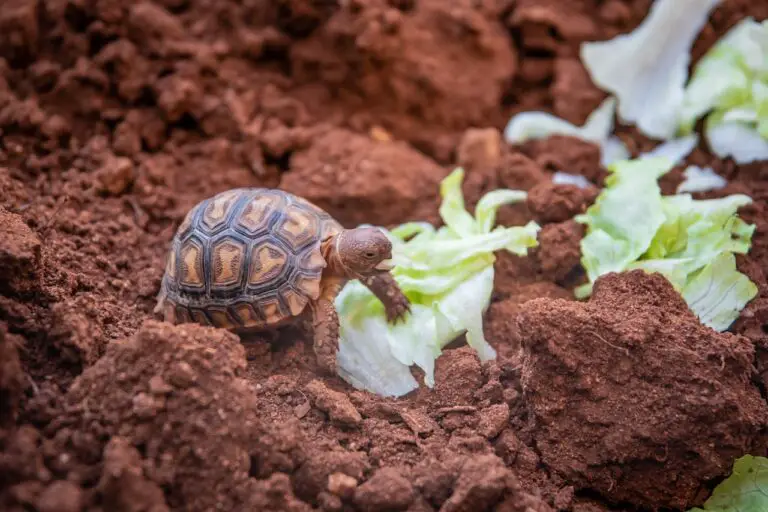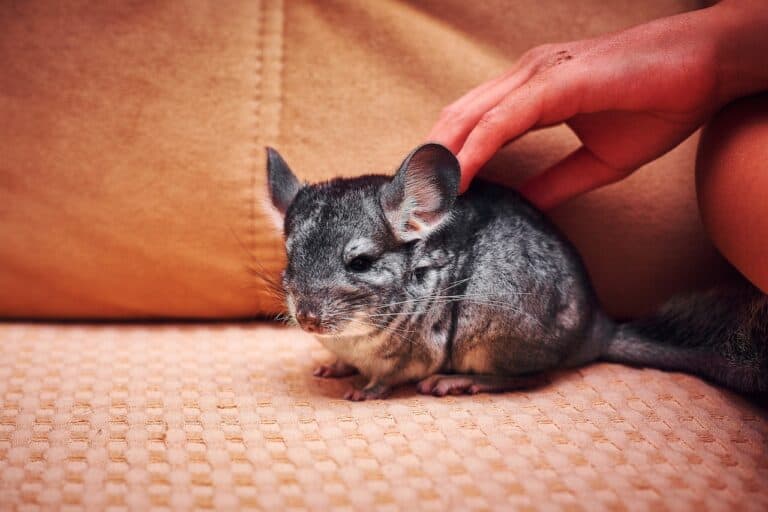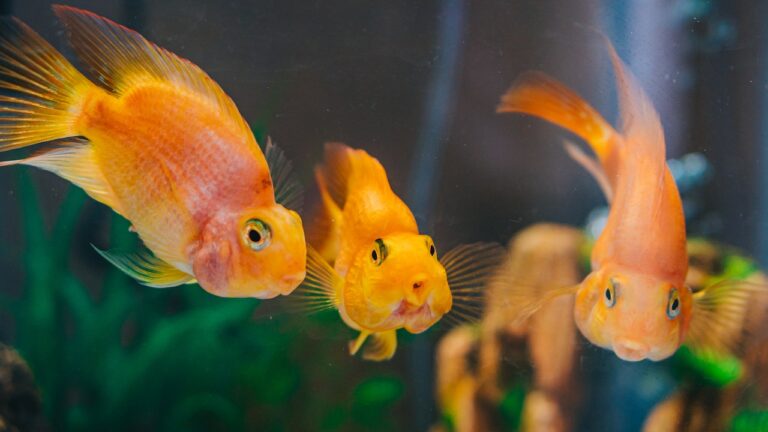Exotic Small Mammals Nutritional Guide [Your Ultimate Resource]
Owning exotic small mammals as pets can be a wonderful and rewarding experience.
These adorable creatures require specialized care, including a proper and balanced diet to ensure their optimal health and well-being.
In this comprehensive nutritional guide, we will explore the dietary needs of exotic small mammals, including rodents, rabbits, ferrets, and hedgehogs, and provide you with valuable insights on how to create a nutritious diet for your furry friends.
Key Takeaways:
- Exotic small mammals require a balanced diet consisting of proteins, carbohydrates, fats, vitamins, and minerals for optimal health.
- Hay is essential for herbivorous species, providing fiber, aiding digestion, and promoting dental health.
- Protein sources like lean meats, cooked chicken, and insects are important for omnivorous small mammals.
- Balancing carbohydrates and fats is crucial to prevent obesity and related health problems.
- Fresh fruits and vegetables offer vital vitamins and minerals to support overall well-being.
- Clean, fresh water should always be available for hydration.
- Choose treats wisely, offering them in moderation and avoiding those high in sugar, salt, or fat.
- Portion control and monitoring your pet’s weight help maintain a healthy body condition.
- Dental health is influenced by diet, and regular dental check-ups are important.
- Consult with a veterinarian experienced in exotic pet care for personalized guidance on your pet’s nutrition.
Understanding the Nutritional Needs of Exotic Small Mammals
Exotic small mammals have specific dietary requirements that differ from traditional pets like cats and dogs.
Understanding their unique needs is crucial for providing them with a well-rounded diet.
These animals are herbivores, omnivores, or insectivores, each with distinct nutritional demands.
Researching the specific species you own will help you tailor their diet accordingly.
- Herbivores: These animals primarily eat plant-based foods such as hay, fresh vegetables, and fruits. Examples include rabbits and guinea pigs.
- Omnivores: These animals have a more varied diet and require a mix of plant-based foods and animal-based proteins. Ferrets and hedgehogs fall into this category.
- Insectivores: These animals rely heavily on insects and other small invertebrates as their primary food source. Examples include sugar gliders and some types of hedgehogs.
Understanding the natural dietary preferences of your pet will allow you to provide a diet that closely mimics their wild food sources.
Choosing the Right Diet for Your Exotic Small Mammal
Selecting the appropriate diet for your exotic small mammal is vital for their overall health.
Commercially available pelleted diets formulated for specific species often provide a good foundation.
However, it is essential to supplement these diets with fresh foods to ensure a varied and balanced nutrient intake.
- Research the specific dietary requirements of your exotic small mammal’s species to understand their nutritional needs.
- Consult with a veterinarian or an experienced exotic pet specialist for recommendations on suitable commercial diets.
- Gradually introduce fresh foods to your pet’s diet, starting with small portions and monitoring their response.
Different species have different dietary needs, so it’s important to tailor their diet accordingly.
For example, rabbits require high-fiber diets, while ferrets need diets higher in protein and fat.
Essential Nutrients for Exotic Small Mammals
Exotic small mammals require a combination of macronutrients and micronutrients to thrive.
Macronutrients include proteins, carbohydrates, and fats, while micronutrients encompass vitamins and minerals.
Providing a well-balanced diet that includes all these nutrients is crucial for their overall health and longevity.
- Proteins: Essential for growth, maintenance, and repair of body tissues. Offer high-quality protein sources such as lean meats, insects, or formulated commercial diets designed for your pet’s species.
- Carbohydrates: Provide energy and fiber. Herbivores rely on complex carbohydrates found in hay and fresh vegetables, while omnivores can also benefit from small amounts of healthy carbohydrates like fruits.
- Fats: Serve as a concentrated energy source. Include small portions of healthy fats like nuts or seeds in your pet’s diet.
- Vitamins and Minerals: Crucial for various bodily functions. Offer a variety of fresh vegetables and fruits to provide a wide range of vitamins and minerals.
Ensuring that your exotic small mammal receives a balanced combination of these nutrients will promote optimal health and prevent nutritional deficiencies.
The Importance of Hay in the Diet
For herbivorous species like rabbits and guinea pigs, hay plays a crucial role in their diet.
It provides essential fiber, aids in digestion, promotes dental health, and prevents gastrointestinal issues.
Timothy hay is the most common and recommended type, but other options like orchard grass or meadow hay can be suitable as well.
- Hay should be available at all times for herbivorous small mammals.
- High-quality hay should be fresh, green, and free from dust or mold.
- Introduce hay to your pet’s diet gradually if they are not accustomed to it.
Including hay as a staple in your pet’s diet will help maintain their digestive health and provide the necessary fiber they need.
Protein Sources for Exotic Small Mammals
Protein is a vital component of an exotic small mammal’s diet, particularly for omnivorous species such as ferrets and hedgehogs.
High-quality animal-based protein sources should be included in their diet to meet their protein requirements.
- Cooked chicken: A lean and easily digestible protein source.
- Lean meats: Offer small amounts of cooked lean meats like turkey or lean beef.
- Insects: Provide live or freeze-dried insects like mealworms or crickets as occasional treats for omnivorous small mammals.
Including appropriate protein sources in your pet’s diet will support their growth, muscle development, and overall well-being.
Balancing Carbohydrates and Fats
Carbohydrates and fats serve as energy sources for exotic small mammals.
However, it’s crucial to strike a balance and avoid excessive intake of these nutrients, as they can lead to obesity and related health problems.
Fresh vegetables and fruits can provide healthy carbohydrates, while limited amounts of healthy fats can be incorporated into their diet.
- Offer a variety of fresh vegetables and fruits, focusing on those that are safe for your pet’s species.
- Limit the intake of starchy vegetables like potatoes or high-sugar fruits.
- Small amounts of healthy fats, such as those found in nuts and seeds, can be included in your pet’s diet. Examples include flaxseeds, chia seeds, or small amounts of unsalted nuts.
It’s important to note that the specific dietary requirements for carbohydrates and fats may vary depending on the species of your exotic small mammal.
Consulting with a veterinarian or exotic pet specialist will help you determine the appropriate balance for your pet’s diet.
The Role of Vitamins and Minerals
Vitamins and minerals are essential for the overall health and well-being of your exotic small mammal.
While commercial diets often provide a good base of essential nutrients, incorporating fresh foods into their diet can further enhance their nutrient intake.
- Vitamin-rich foods: Offer a variety of fresh fruits and vegetables to provide a wide range of vitamins. For example, carrots are a great source of vitamin A, while citrus fruits can provide vitamin C.
- Mineral-rich foods: Leafy greens like kale or spinach can offer important minerals such as calcium and iron.
It’s vital to ensure that the fresh foods you provide are safe and suitable for your pet’s species.
Some exotic small mammals may have specific dietary restrictions, so research their specific needs or consult with a veterinarian.
Water: An Essential Component of the Diet
Water is a vital component of an exotic small mammal’s diet. It plays a crucial role in digestion, nutrient absorption, and overall hydration.
Ensure that fresh, clean water is always available for your pet.
- Clean the water container daily: Regularly clean and refill your pet’s water container to prevent the buildup of bacteria or contaminants.
- Monitor water consumption: Keep an eye on your pet’s water intake to ensure they are adequately hydrated. Changes in water consumption may indicate underlying health issues.
Some exotic small mammals, such as hedgehogs, may prefer drinking from a shallow dish rather than a water bottle.
Monitor your pet’s preferences and provide water in a way that is most suitable for them.
Healthy Treats for Exotic Small Mammals
Treats can be a fun and rewarding addition to your exotic small mammal’s diet.
However, it’s important to choose treats wisely and offer them in moderation to prevent excessive calorie intake and potential health issues.
- Fresh fruits: Offer small portions of fresh fruits as occasional treats. Ensure that the fruits are safe and appropriate for your pet’s species.
- Commercial treats: Look for commercially available treats designed specifically for your pet’s species. These treats are formulated to meet their nutritional needs and can provide a safe and enjoyable snack.
Avoid feeding treats high in sugar, salt, or fat, as they can be detrimental to your pet’s health.
It’s always best to consult with a veterinarian to ensure that the treats you choose are suitable for your exotic small mammal.
Feeding Guidelines and Portion Control
Feeding your exotic small mammal the right amount is crucial to maintain a healthy weight and prevent overeating.
Portion control is essential, as these animals have different metabolic rates.
Consult your veterinarian for specific feeding guidelines based on your pet’s species, age, weight, and activity level.
- Follow the recommended feeding guidelines provided by the manufacturer of your pet’s commercial diet.
- Adjust the portion size based on your pet’s individual needs and activity level.
- Monitor your pet’s weight and body condition regularly to ensure they are in a healthy range.
Maintaining a healthy weight is important to prevent obesity and associated health problems in exotic small mammals.
Regular monitoring and adjustment of their diet will help keep them in optimal condition.
Common Nutritional Issues and How to Address Them
Nutritional deficiencies and imbalances can lead to various health issues in exotic small mammals.
Lack of fiber can cause gastrointestinal problems, while excessive fat intake can lead to obesity.
Regularly assess your pet’s diet and watch for any signs of nutritional issues.
- Monitor their weight: Keep track of your pet’s weight and body condition. Sudden weight loss or gain may indicate an underlying nutritional problem.
- Watch for signs of dental issues: Improper diet can contribute to dental problems. Look for signs of tooth overgrowth, difficulty eating, or drooling.
If you notice any concerning symptoms or changes in your pet’s health, consult a veterinarian promptly.
They can provide appropriate guidance and address any nutritional concerns.
The Impact of Diet on Dental Health
Dental health is crucial for exotic small mammals, as dental issues can significantly impact their well-being and ability to eat.
A proper diet plays a vital role in maintaining good dental health.
- Provide appropriate chew toys: Offering suitable chew toys can help wear down your pet’s teeth and prevent overgrowth.
- Incorporate fibrous foods: Hay and other fibrous foods promote natural tooth grinding and help prevent dental problems.
- Regular dental check-ups: Schedule regular dental check-ups with a veterinarian experienced in exotic small mammal care. They can assess your pet’s dental health and perform necessary treatments if required.
Incorporating dental-friendly practices into your pet’s diet and routine can help prevent dental issues and ensure their overall well-being.
Maintaining a Healthy Weight
Obesity is a common issue among exotic small mammals and can lead to a range of health problems.
It’s essential to monitor your pet’s weight and take steps to maintain a healthy weight.
- Follow portion control: Avoid overfeeding and follow the recommended portion sizes for your pet’s species and size.
- Encourage exercise: Provide opportunities for your pet to engage in physical activity and play. This can include supervised out-of-cage time or providing toys that promote movement.
If your pet is overweight or underweight, consult with a veterinarian to develop a suitable diet and exercise plan.
They can provide guidance specific to your pet’s needs and help them achieve and maintain a healthy weight.
Consulting with a Veterinarian
Consulting with a veterinarian experienced in exotic pet care is essential for providing the best possible nutrition for your exotic small mammal.
They can offer valuable advice tailored to your pet’s specific needs, monitor their health, and address any nutritional concerns.
Regular veterinary check-ups are important to assess your pet’s overall well-being and ensure that their diet is meeting their nutritional requirements.
Conclusion
Proper nutrition is vital for the well-being and longevity of your exotic small mammal.
By understanding their specific dietary needs, providing a balanced and varied diet, and monitoring their health, you can ensure that they thrive in your care.
Remember to research the specific dietary requirements of your pet’s species, consult with a veterinarian, and gradually introduce new foods into their diet.
By following these guidelines and providing a loving and nurturing environment, you can give your exotic small mammal the ultimate nutritional support they need to live a happy and healthy life.
FAQs
Can I give treats to my exotic small mammal?
Yes, treats can be given occasionally to exotic small mammals.
Opt for healthy options like fresh fruits or commercially available treats designed for their species.
Remember to limit treat portions to prevent overeating.
What are the signs of nutritional deficiencies in exotic small mammals?
Signs of nutritional deficiencies may include weight loss, dull coat, poor growth, lethargy, or dental problems.
If you notice any unusual changes in your pet’s appearance or behavior, consult a veterinarian.
Are there any foods that are toxic to exotic small mammals?
Yes, some foods can be toxic to exotic small mammals.
Examples include chocolate, caffeine, onions, garlic, and certain plants.
It’s crucial to research and ensure that the foods you offer are safe for your pet’s species.
Should I provide supplements to my exotic small mammal?
In general, a well-balanced diet should provide the necessary nutrients for your pet.
However, certain species or health conditions may require specific supplements.
Consult with a veterinarian to determine if supplements are necessary for your pet’s needs.
Peter Stones is the founder of Exotic Pets Place, the leading online resource for exotic pet care information.
With over 10 years of hands-on exotic pet ownership experience, he is deeply passionate about sharing his expertise to help others properly care for their unusual pets.
When he's not writing extensively researched articles or connecting with fellow exotic pet enthusiasts worldwide, you can find Peter at home tending to his own beloved menagerie of exotic animals.

![Exotic Small Mammals Nutritional Guide [Your Ultimate Resource], two guinea pigs eating veggies](https://exoticpetsplace.com/wp-content/uploads/2023/06/Exotic-Small-Mammals-Nutritional-Guide-Your-Ultimate-Resource-two-guinea-pigs-eating-veggies.jpg)


![Aquatic Exotic Pet Care Tips Essential Guide [+ Common Issues], two people caring for fish](https://exoticpetsplace.com/wp-content/uploads/2023/06/Aquatic-Exotic-Pet-Care-Tips-Essential-Guide-Common-Issues-two-people-caring-for-fish-768x512.jpg)


